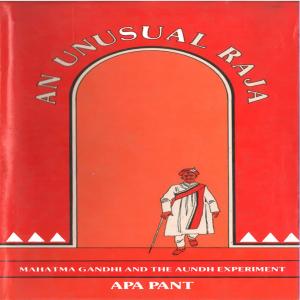People of the Maldive Islands
Nonfiction, Reference & Language, Reference, Guides & Handbooks, Social & Cultural Studies, Social Science, Anthropology| Author: | Clarence Maloney | ISBN: | 9788125051343 |
| Publisher: | Orient Blackswan Private Limited | Publication: | May 13, 2013 |
| Imprint: | Language: | English |
| Author: | Clarence Maloney |
| ISBN: | 9788125051343 |
| Publisher: | Orient Blackswan Private Limited |
| Publication: | May 13, 2013 |
| Imprint: | |
| Language: | English |
This book is an engagingly told cultural historical narrative of the island nation of the Maldive Islands from the earliest references in Indian and European classics. It also narrates the story of the settlement by people from South India and Sri Lanka, and their later conversion to Islam. The second half of the book is an anthropological perspective of life as it was in the mid-1970s, with chapters on society, politics, religion and the economy.The change due to international influence in recent decades, especially in the capital Male, has been so vertiginous that many Maldivians are keen to understand what life was in their parents' time, when population was one-third of what it is today, the traditional fishing and lethargic cultural ethos that prevailed, and before modern education and international contacts had such an impact.People of the Maldive Islands is of more interest now as it was made unavailable during the thirty-year dictatorship of President Gayoom, before the democratic revolution of 2008. Many tourists, mostly Europeans, who visit every winter and stay on the little islands, also have an interest in the traditional culture. The Maldives has gained relevance in recent years because of present day Islamic movements, trade relations with India, and more so because of the mortal threat of the rise of the ocean and acidification of coral islands. This was made famous by the then President Nasheed's plea on the international stage for reversing human causation of global warming.This book would be of interest to anthropologists, scholars of culture studies and Maldivians. The book has photographs depicting the lifestyle in the Maldives people in the 1970s before the massive impact of modernization.
This book is an engagingly told cultural historical narrative of the island nation of the Maldive Islands from the earliest references in Indian and European classics. It also narrates the story of the settlement by people from South India and Sri Lanka, and their later conversion to Islam. The second half of the book is an anthropological perspective of life as it was in the mid-1970s, with chapters on society, politics, religion and the economy.The change due to international influence in recent decades, especially in the capital Male, has been so vertiginous that many Maldivians are keen to understand what life was in their parents' time, when population was one-third of what it is today, the traditional fishing and lethargic cultural ethos that prevailed, and before modern education and international contacts had such an impact.People of the Maldive Islands is of more interest now as it was made unavailable during the thirty-year dictatorship of President Gayoom, before the democratic revolution of 2008. Many tourists, mostly Europeans, who visit every winter and stay on the little islands, also have an interest in the traditional culture. The Maldives has gained relevance in recent years because of present day Islamic movements, trade relations with India, and more so because of the mortal threat of the rise of the ocean and acidification of coral islands. This was made famous by the then President Nasheed's plea on the international stage for reversing human causation of global warming.This book would be of interest to anthropologists, scholars of culture studies and Maldivians. The book has photographs depicting the lifestyle in the Maldives people in the 1970s before the massive impact of modernization.















